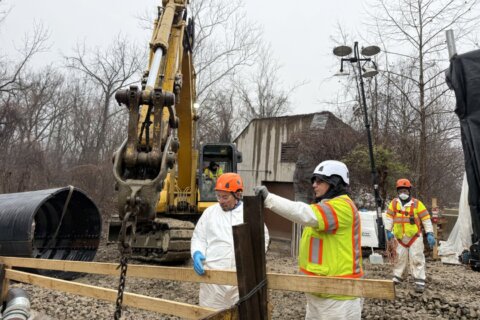With unemployment claims rising in Maryland due to the effects of the coronavirus, Montgomery County has introduced a measure to provide relief to renters.
The COVID-19 Renter Relief Act would prohibit landlords from increasing rent for residential tenants during and within 30 days after the COVID-19 public health emergency.
Also called Expedited Bill 18-20, Landlord-Tenant Relations — Rent Stabilization During Emergencies, it would also prohibit notices of rent increases during and within a certain time period after the emergency.
“One in 10 Americans is out of work right now. We need federal action to help many people to be able to pay their current rents, let alone an increased rent,” Council member Will Jawando, the bill’s lead sponsor, said in a statement Tuesday.
Council President Sidney Katz and Council members Craig Rice and Nancy Navarro are co-sponsors.
Jawando said that he has received reports of rent increases and late fees being added at some properties.
“Our offices received reports from the Department of Housing and Community Affairs, as well as directly from constituents and the (Montgomery County) Renters Alliance, all citing some unfortunate increases and notices of increases that were given to residents,” he said.
In addition, he said the renting population tends to include much of the county’s lower-income population.
“We want to make sure we’re not having a situation where people lose their shelter, lose their home or have eviction proceedings started after the crisis,” Jawando said.
The increases and fees would go in effect on or before July 1, when many individuals and business are going to be trying to recover from lost wages.
“If you own a home, there are options to put your mortgage payments on the back of the loan and to kind of work out those kinds of arrangements. Our renters don’t have those options,” Jawando said.
About one-third of the county’s residents are renters. According to Jawando, some areas, like downtown Silver Spring and Bethesda, have renter populations of 40% to 50%.
“We need to ensure that vulnerable residents, many of whom are already dealing with heightened anxiety and heightened risk of infection, do not also have to worry about large, unanticipated rent increases and about whether they can afford to stay in their dwelling places during this crisis,” Jawando said.
The bill is not a rent freeze or rent control, but rather a temporary measure to help people who are struggling right now in this crisis, Jawando told council members Tuesday during a legislative session.
The emergency bill will be considered at the council’s April 21 meeting. If passed, it would go into effect immediately and will expire 121 days after the state of emergency ends.
Over 240,000 Maryland residents have filed for unemployment benefits in the past month.
- Most expensive rent in the DC area? Bethesda
- Md. Dept. of Labor: ‘It’s all hands on deck’ to help residents file for unemployment
- Unemployment claims rise by another 273,000 in DC, Md. and Va.
- State unemployment systems tested by surge of applicants









